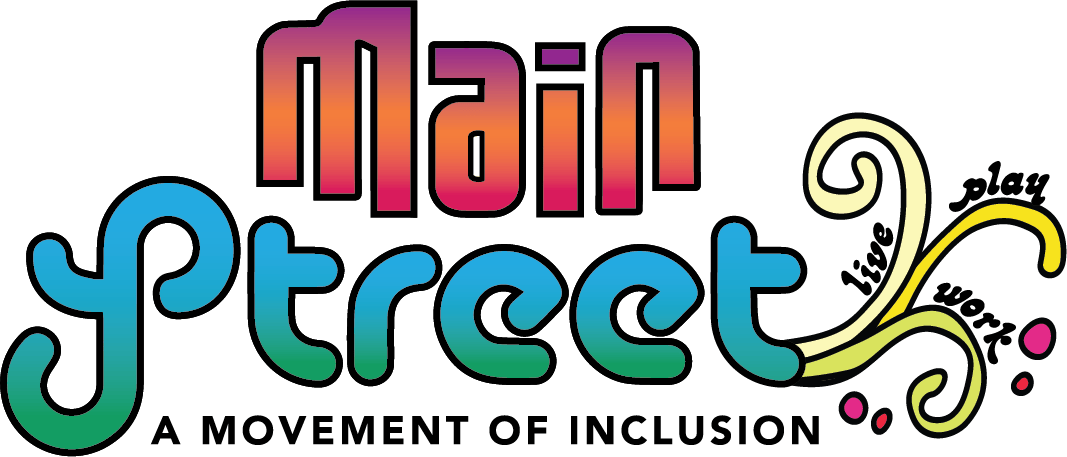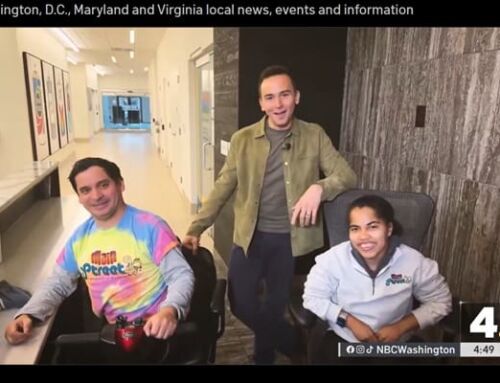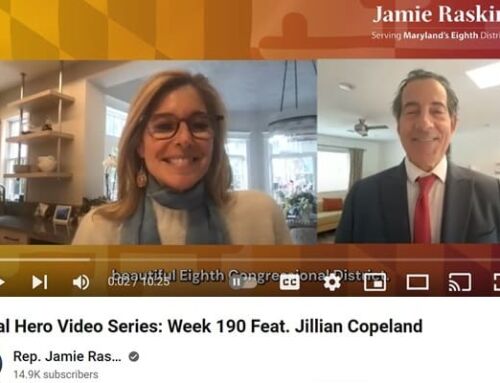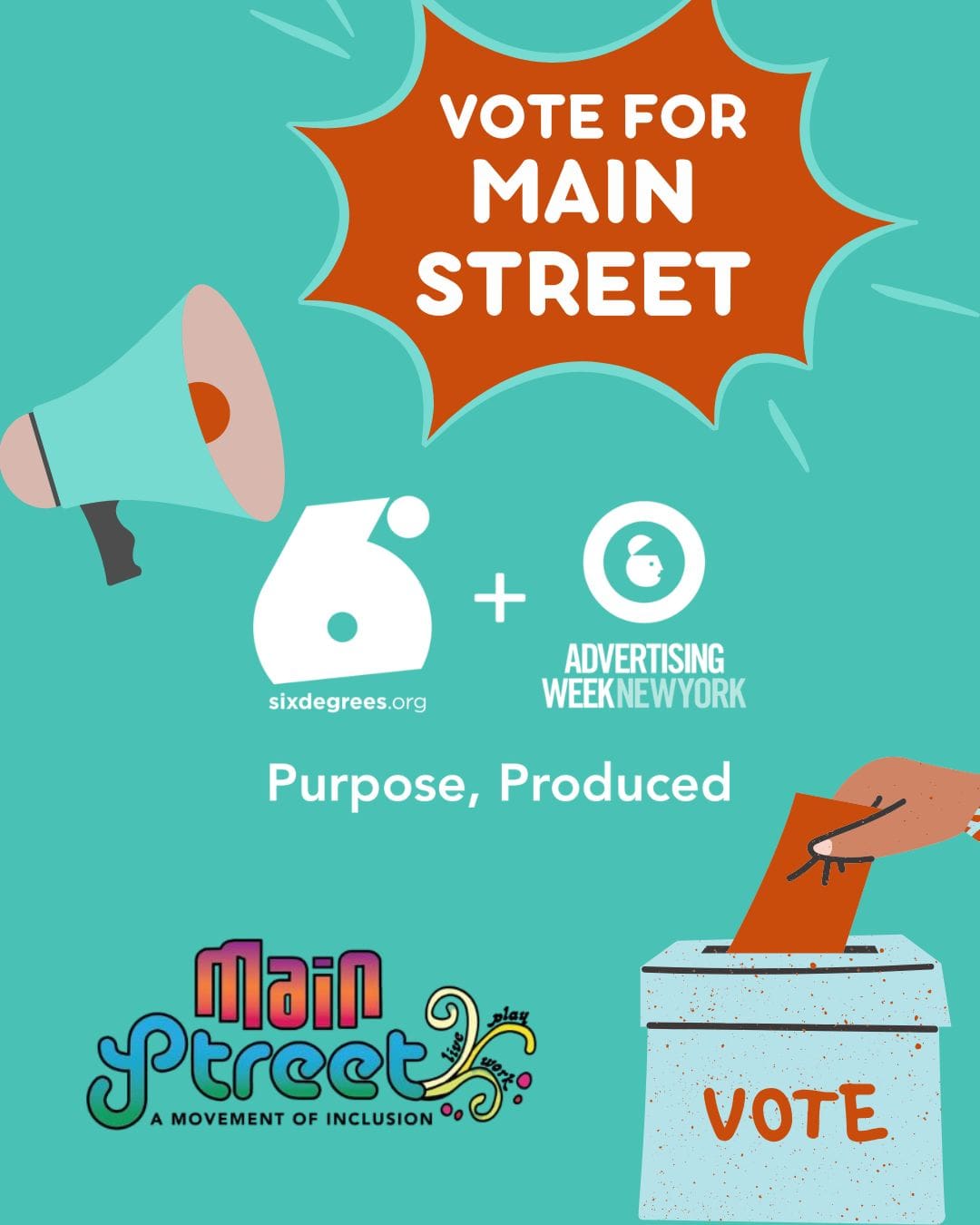POTOMAC ALMANAC (7/18/2017) – Main Street, a Rockville development project that describes themselves as inclusive and community focused, held a community-builder event during the Bethesda Big Train game on Wednesday, July 12. A community builder aims to bring people in the community together in a supportive environment, according to Main Street Founder and Board Chair Jillian Copeland. Copeland is from Potomac and founded The Diener School there, which focuses on providing education that supports children holistically.
Copeland described Main Street’s “multi-age, multi-stage” philosophy as helping any adult with disabilities because they lose their entitlements upon turning 21. Anyone can become involved with the organization, however, she said.
“The opportunity that we’re creating at Main Street is this inclusive community center,” Copeland said. “It’s a seventy-unit apartment building. And 25 percent of the units will be designated for adults with disabilities.”
The Big Train game was seen as an opportunity to bring those among the 780 members together in an inclusive environment within the county, according to Copeland. She said the community-builder was also an opportunity for members to get to know one another.
“A lot of our adults and a lot of our kids and a lot of our parents like baseball,” Copeland said. “So we wanted to support a local baseball team.”
Copeland believes that there are no other living models like Main Street in the United States to date. She discussed her son’s journey when talking about her involvement with organizations that help people living with developmental disabilities.
“He’s going to need a place to live and work and learn and thrive,” Copeland said. “So that’s ‘why now?’ for me.”
Multiple parents who are involved with Main Street discussed their personal connections to the organization at the community-builder. Potomac’s Karen Beveridge has a son, who is 22, and was diagnosed with autism spectrum disorder when he was around 3 years old. Beveridge, who leads the membership committee and serves on the board of directors, discussed how living with someone who has a developmental disability can detach a family from their surrounding environment because of the challenges this person faces in social interaction in the outside world.
“They don’t like loud noises sometimes so it makes it confining to things you can do as a family,” Beveridge said. “At Main Street, everybody’s welcome. So if [my son] wants to go stand off by himself because it’s getting too loud, no one’s going to think anything of it.”
John Bogasky, who is on a task force of approximately 20 adults who are helping the Copelands, described living with someone with a disability as “a journey of discovery.” Bogasky knew his son was facing challenges when he was a baby despite the absence of a formal diagnosis.
“We knew there’d be issues but trying to discover what the issues were and which he would grow out of was a journey of discovery,” Bogasky said. “We just did everything we could for him. We intervened as much as we could to try to make him successful.”
According to Bogasky, another difference that comes with raising a child with a disability is the continuation of parenting after the child has become an adult because the child retains many child-like traits. Bogasky’s son is now 25 years old.
“He has a job, he lives in his own apartment,” Bogasky said. “[But] we’re still responsible for overseeing his life. [We’re] making sure things work and that will continue until some day it passes to his sister.”
Bogasky described Main Street as a unique organization because it provides those with disabilities with an environment for them to spend time with their peers. He said that it is a challenge for any adult to figure out who their friends are.
According to Bogasky, his son attended a residential school on Cape Cod, Mass. Bogasky added that his son had a lot of success making friends at this school.
“When you bring the people back here, the way the housing policies work out … they get scattered all over the place much like all of us do when we come back from college,” he said. “But these guys can’t go find each other … Some travel independently and some can’t, [and] some don’t have the executive functioning skills to find their friends.”
Beveridge was pleased with event turnout. She had initial concerns that it would be poor due to people being away in the middle of summer.
Main Street is trying to enhance their sense of community through increasing the number of events they hold, Bogasky added. This could mean planning formal events or simply having several members get together somewhere, he said.
“The first official one of [the latter] is in Rockville Town Center,” Bogasky said. “There’s a concert every Friday night in the square. And so the first … Main Street meet-up is on Aug. 4 in Rockville Town Square.”
Anyone interested in joining Main Street can get involved, according to Bogasky. He added that those interested can sign up on mainstreetconnect.org.
“More is better because … not everybody is going to live in the building,” Bogasky said. “The plan is about creating this community with the building as the anchor.”
Copeland added that Main Street’s website includes a survey for adults with disabilities and their caregivers. The information collected from the survey is useful to the organization as it creates a space and plans events, she said. For more information or to get involved, visit mainstreetconnect.org.
###
This article was written by Gil Jacobson and orginally posted on http://www.potomacalmanac.com on 7/18/2017






